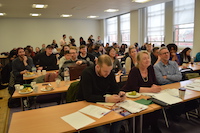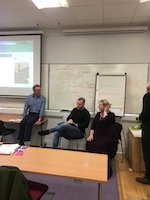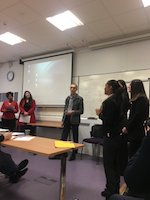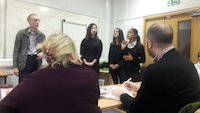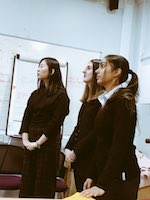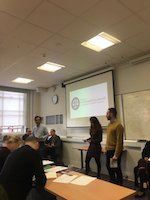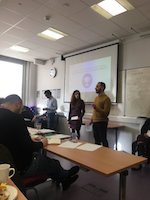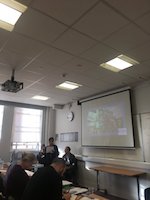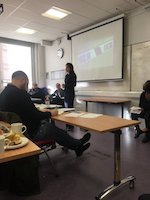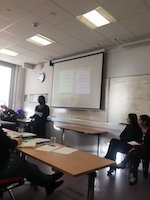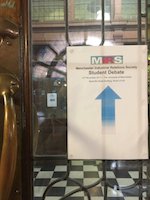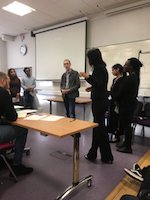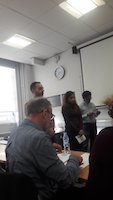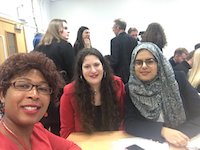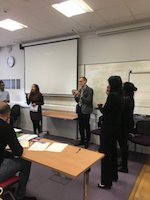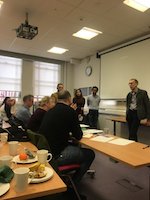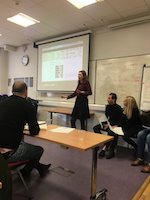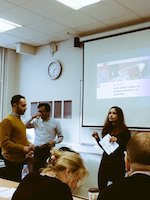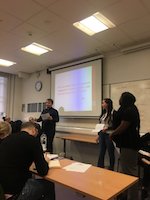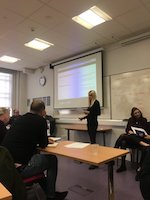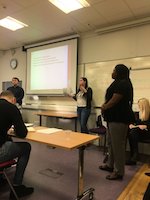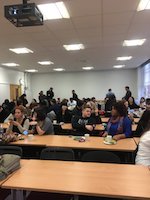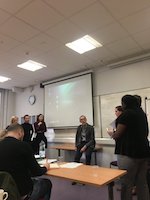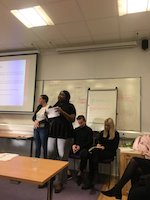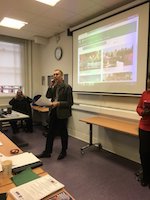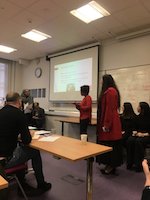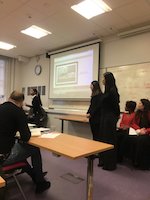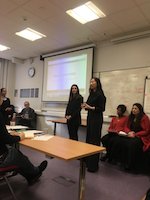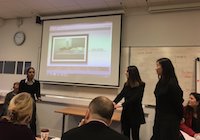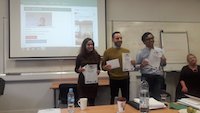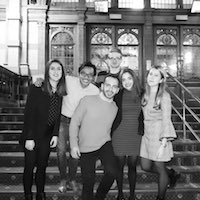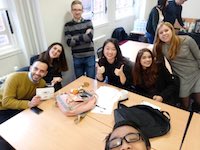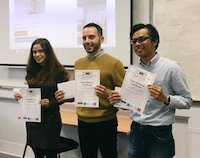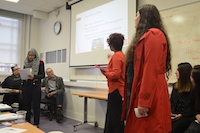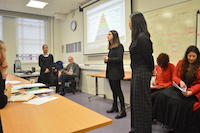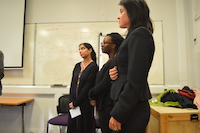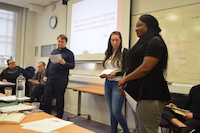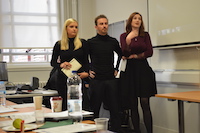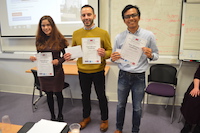MIRS - Student Debate: November, 2017
On 23 November 2017 six teams from the three Greater Manchester based universities (University of Manchester, Manchester Metropolitan University and University of Salford) battled each other in the form of an academic debate, organised by the Manchester Industrial Relations Society (MIRS), on sharp and contested topics of interest in the area of HRM and Industrial Relations. The MIRS Student Debate, which took place in the historical Sackville Street Building, was chaired and moderated by Professor Ralph Darlington (MIRS secretary) and Dr Jenny Rodriguez (MIRS chair).
Three questions were assigned to the teams who had to defend a position (‘yes’ or ‘no’) that required research and preparation in order to finally convince the three demanding judges. The panel of judges, representing the essential actors of employment relations, was composed by Jay McKenna, (Policy and Campaigns Officer, North West TUC), Professor Mick Marchington (CIPD advisor and Emeritus Professor of HRM, University of Manchester) and Michele Piertney, (ACAS senior advisor).
Besides the excitement of a competition, the idea of a Student Debate was launched in 2016 to challenge students to engage on contested topics of employment relations in a new educational and inspiring way. It was also conceived as an opportunity for students to research and apply theories studied in classes to the broader public discourse, crafting arguments and conclusions and looking for supportive examples.
To debate an assigned case is not always a straightforward task, as sometimes students have to argue for an ‘uncomfortable’ or less preferred position; however, this ‘game’ has a broader aim rather than just convince the audience about the rightfulness of the arguments: it is indeed a way of challenging mainstream positions, embracing different points of view, and asking sharp questions. More importantly, the debate is an opportunity for students from different institutions to come together and engage with a broader audience than the usual class. It is a chance to have their voices heard outside their university walls.
The debate opened with first two teams discussing around the question ‘Does HRM fundamentally operate in the interests of management and not employees?’. Salford Business School (SBS) argued for ‘yes’, while the Alliance Manchester Business School (AMBS) made the case for the employee interests at the core of the HRM function. Both teams strongly supported their case with examples and theory and a passionate round of questions and objections set the right ambience for the next rounds.
The second question lighted up the most heated discussion of the day, between AMBS and Manchester Metropolitan University (MMU), on the very delicate topic of strikes: ‘Can strike action in important public services (such as schools, NHS, fire service, transport) ever be justifiable given the broader impact it has on the public and society?’. While AMBS defended the right to strike for public sector workers, MMU fiercely contested this right on the basis of the case of English police. The discussion engaged the public and the judges and inspired many questions from the floor: the final result, as we will see, will be particularly favourable for one of these teams.
Last but not least, in the last round, MMU and SBS confronted each other on the question: ‘Can non-union forms of employee engagement provide workers with any effective voice and representation at work?’. The MMU team supported the role of non-unions forms of voice are effective in providing voice and representation for workers, offering an overview of the different types of voice and successful examples, winking to one of the judges and its area of expertise. The other team brilliantly presented the counter argument in a sparkling and caustic ways, defending the unavoidable role of unions in being the vectors of workers voice, (winking to another judge in the panel!).
The decision of the winning team was not an easy one, as the judges went for a 45 minutes animated discussion; but, as partially anticipated, the winners (presumably by split decision) came out from the second debate, and the AMBS team composed by Yosea Kurnianto, Megan Roche and Panagiotis Zouganelis was considered to have delivered the best performance and the most effective arguments. Their delivery of the arguments, the appropriate use of slides, and the right dose of dramatic skills, alongside with the construction and the solid basis of the arguments was deemed to be outstanding and thus recognised with the victory. In their motivations, however, the judges praised all the other teams for the quality of the debates and for the effectiveness of the delivery, accompanied by suggestions for improvement.
Overall, the event has received enthusiastic feedbacks from the more than 80 attendees and the students actively participating. This positive experience will certainly set a precedent for guaranteeing the continuation of this MIRS commitment to the students’ engagement.
Cristina Inversi

